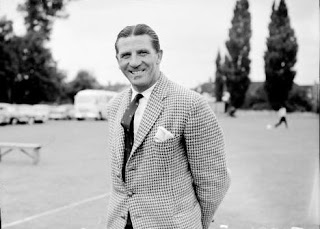Countdown for the English top-flight season has begun, considering the customary change which takes place at Stamford Bridge almost every summer. The club underwent a model shift of immense proportions when Andre Villas-Boas, the 33-year old manager of Porto, was persist in, and instated as the manager of Chelsea. A club that desires to win the Champions League appointed a manager who’s yet to manage even a single game in the elite competition.
Finally the club has made an appointment with Portuguese’s exploits with Porto convinced the men who matter that he can deliver immediate results. Anyway, the fate of the manager will be determined by what the team does on the pitch.
four are decently covered,out of the back five positions. Petr Cech owns the number 1 position at Chelsea, and the fact that the club offered Hilario a one-year extension, argue that the management trusts him to serve as a back-up for at least another year. For the left-back slot, Cole is a sure-shot starter, while Bertrand and/or van Aanholt can serve as an able back-up, whenever the need arises. Chelsea have arguably the best collection of center-backs, matched only by Man United perhaps, in Terry, Luiz, Ivanovic, and Alex. The 22-year old Serbian defender Slobodan Rajkovic, who is built like a tank, may eventually replace The Tank if his work permit hearing goes in Chelsea’s favor, allowing Alex to move on. The only position which does not inspire confidence is right-back. If Ivanovic starts there, then Bosignwa and Ferreira can be trusted to fill in for him, occasionally. However, if Villas-Boas prefers Ivanovic in central defense (going by pre-season selections), the situation will become tricky.
Mikel and Romeu, two attacking midfielders in Lampard and Benayoun, one good passer of the ball in McEachran, and one tireless box-to-box player in Ramires. In all honesty, all will depend on how ready Romeu really is for first-team football in the Premiership, on the rise of McEachran, on the impact of fit-again Benayoun, and on the kind of season Mikel has. Ideally, the midfield is not properly covered, with the departure of Zhirkov, injury to Essien, and the absence of a young, attacking, goal-scoring midfielder. In a scenario wherein Mikel gets injured before a huge game or is out-of-form, the manager will have only Romeu to call upon in case he wants a physical presence in the middle. Now a team of Chelsea’s stature, may not want to face such a predicament.
Villas-Boas is way too smart to miss out on this deficiency in the squad, so the only reason why the club has not signed anyone can be that they haven’t been able to free-up slots in the team. If they can’t sell them, they must keep them. If they must keep them, they must play them. If they play them, the team will lack balance.
The departure of Zhirkov will leave one slot, but it may be used up to strengthen the midfield. If Rajkovic get’s a work permit, Alex will be sold as the Serbian will qualify as a home-grown player, freeing up one more place. Ergo, to bring in one or two wide players, the club has to somehow sell either Malouda, Anelka, or Kalou, or sign an under-21 player.
Overall squad strength: Defense – strong. Center-forwards – strong. Midfield – average. Wide-forwards – weak.
Fixture Analysis
In a busy month of December, Chelsea have to entertain Man City before two back-to-back London derbies against Tottenham at White Hart Lane and against Fulham on Boxing day. It will serve the club well in the end, not to lose their way in this period. City and Spurs would then take on Chelsea on March 17 and March 24 – a crucial couple of weeks for Chelsea, especially as they will be expected to give their best in the Champions League round-of-16 fixtures as well.
In the last four games of the season, The Blues may have to dig deep to get favorable results from their trip to Emirates on April 21 and at Anfield on May 5, before ending the campaign at Stamford Bridge against Blackburn on May 13, 2012.
PREDICTION
If we look at the present team, it’s good enough to crush the living daylight out of mediocre teams, but may come up short against the top teams, both in the league and in Europe.
Chelsea will look towards their biggest signing of the summer, their manager, to make up for whatever the team lacks in personnel. His tactical astuteness, attention for detail, ability to get the best of of his players will be the club’s most potent weapon this season. The players will be immaculately prepared – each one of them will know exactly what to expect from their opposite number. The team is very solid defensively, and if players such as Mikel, McEachran, Malouda, Benayoun, Sturridge and Torres consistently play well, then this team will appear an altogether different unit.
The 2010–11 season is Chelsea Football Club's 96th competitive season, 19th consecutive season in the Premier League, and 105th year in existence as a football club. They went into the Premier League as the defending champions, but failed to retain it. Chelsea Premier League Tickets are available at FootballTicketExchangeOnline.com at affordable price. Football fans can buy or sell Football Tickets especially Chelsea Premiership Football Tickets at FootballTicketExchangeOnline.com conveniently.











